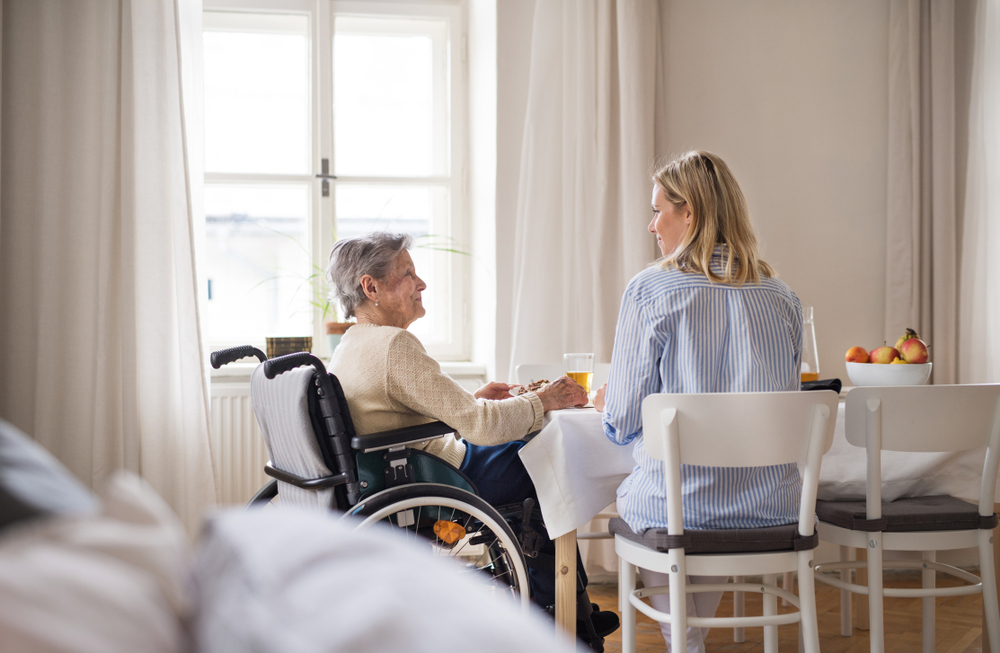ALS, or amyotrophic lateral sclerosis, is a condition that affects nerve cells in the brain and spinal cord. It involves muscle atrophy and progressive degeneration of the motor neurons that control voluntary movements and muscle control. Over time, people with ALS may lose the ability to speak, eat, move, and breathe on their own.
What Are Some Early Warning Signs of ALS?
ALS’ progression rate can vary, and not all people with this illness experience the same symptoms. However, a gradual onset of muscle weakness or stiffness is the most common initial warning sign. Other early-stage symptoms may include discoordination, fatigue, and slurred speech. Since ALS only attacks motor neurons, it doesn’t affect the senses of sight, touch, hearing, taste, and smell.
ALS can be challenging to diagnose, often involving a series of screenings to rule out other illnesses with similar symptoms. To determine if your loved one has ALS, a physician may order a comprehensive diagnostic workup that includes the following procedures.
- Tests such as electromyography and nerve conduction velocity
- Blood and urine studies
- A spinal tap
- X-rays or MRIs
- Myelogram of the cervical spine
- A muscle or nerve biopsy
- A thorough neurological examination
What Can You Expect as ALS Progresses?
If your loved one has ALS, their condition will worsen with time, and they will gradually become too impaired to do daily activities like driving.
Middle Stages of ALS
Symptoms become more noticeable and widespread after their initial onset. If your loved one falls, they may not be able to get back up without help. Weakened swallowing and breathing muscles can also cause choking and respiratory inefficiencies. Unused muscles may cause contractures, in which the joints become rigid, painful, and sometimes deformed. Some people experience uncontrollable laughing or crying bouts that do not necessarily reflect their mood.
Late Stages of ALS
The late stages of MLS cause widespread muscle paralysis, including the muscles that help move in and air out of the lungs. Mobility becomes extremely limited, and poor respiration may cause confusion, fatigue, headaches, and susceptibility to pneumonia. Most ALS deaths result from respiratory failure. Cardiac arrhythmia and pulmonary embolisms are also possible complications of late-stage MLS.
Expert Los Angeles ALS Care
While receiving a diagnosis of early-stage ALS can be frightening for you and your loved one, you can significantly improve their prognosis and quality of life by hiring an experienced in-home ALS caregiver. At Legacy Homecare LA, we focus on providing comfort and maintaining dignity by supporting the physical, emotional, and spiritual needs of people living with ALS and their family members.
Our Care Companions can set up an in-home physical therapy program to promote mobility and flexibility, while also helping your loved one with routine tasks like bathing, dressing, and eating. We adapt our custom services to match your family’s changing needs, providing your loved one with the necessary treatment 24/7. Contact us today if you are ready to learn how we can bring stability, companionship, and safety into your loved one’s life.






